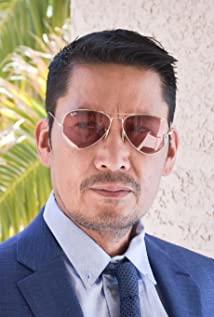The title of this series of drama reviews might make people feel a little nonsensical, and the process of thinking about this title is purely coincidental. A few days ago, when I was spending money to buy a member of a food delivery APP, I accidentally ordered a joint membership with a certain video APP, which resulted in an extra 5 yuan. Human nature is always sensitive to losses, so I always want to read enough books before membership expires. After searching, I found that members of this video app can watch the Westworld trilogy, and suddenly there is a kind of superlative. Feeling of worth (hehe, of course, this is another characteristic of human nature, making excuses for one's actions). Because I spent too much time watching Westworld and was scolded by my wife (mainly because I only watched TV series and didn’t watch children), after watching the Westworld trilogy, I always felt like I wanted to write something, but I didn’t know what to write. , After reading a few books, I suddenly thought of this nonsense title. Zen, neuroscience, and Westworld, three seemingly unrelated topics, are actually all about the same topic, our brain, consciousness, and self. So there's this series review with a seemingly magical title. In order to avoid unnecessary quarrels and avoid annoying gangsters, first of all, I need to make a few statements: First, I am not a Buddhist, but have some experience in meditation, so my understanding of Buddhism is limited. There are many branches of Zen itself. I dare not say that what I have said in these articles can represent all schools of Zen Buddhism. The Zen I have said in these articles is mainly based on the following books: The Original Mind of the Zen Master by Shun Taka Suzuki and Robert A. Wright's Insights. Second, neuroscience is a subject with many schools of thought, and different people have different understandings of neuroscience. The neuroscience I have mentioned in these articles is mainly based on two big figures in the European and American neuroscience world, one is Michael Gazzaniga who studies the split-brain phenomenon, and the other is the research on prefrontal lobe damage leading to emotional dysfunction of Antonio. Damasio. I'm not an expert in neuroscience, so I can't judge whether these two represent the most cutting-edge knowledge of neuroscience. Anyway, these two books are the easiest to buy in China, hehe. Third, these articles will discuss some plots in the TV series "Westworld", so there will be slight spoilers. If you want to follow this drama, you can bypass it first, and then listen to it after watching the full episode. I'm bullshitting. Let's enter the text below. What is the data that is always contested in Westworld? It is a record of the behavior of all guests in the "playground" field of Westworld. All the guests' every move in the "playground" of Westworld is recorded by the robot "receptionist" and stored in the database of the Westworld operator. in. Someone sent undercover agents into Westworld to get this information. Who are the buyers of this information? is a company that develops super artificial intelligence, and they gain the ability to predict people's behavior through this behavioral data, so as to control the whole world. This metaphor of Westworld is very realistic and ironic. The various apps in our mobile phones are the same as the "Westworld" paradise in TV series. We seem to be their consumers, but our operations and behaviors are actually these apps. The most important product, they sell our behavior to people who are interested in it, and then big data can calculate your needs and hobbies, give you the right pop-up window at the right time, and complete an already designed one. Consumption. Many people are a little bit privacy conscious when talking about mobile apps, noticing not to reveal their sensitive information, such as home address, work place and bank account number, etc. In fact, this kind of privacy awareness is outdated, and people who buy data in the future may not need your information at all. Westworld tells us that the big data in the future only needs your behavior. With your behavior records and big data, you can predict all your future consumption behaviors and earn enough money from you. Every like you click in the social app, every video you watch in the video app, and every order you place in the group buying app is to make this file clear and make future predictions more accurate. As for It doesn't matter what your name is or where you live. Many people say that the Internet gives people more freedom, and I used to think so, but after watching this TV series, I have a new understanding. If the foundation of Internet commerce is to establish detailed user profiles, then Internet commerce will inevitably move towards concentration, and this concentration is not like the monopoly of the Rockefeller and Carnegie eras to control the upstream and downstream of a single industry. The concentration of Internet commerce in the future will be dabbling There is an industrial monopoly. Because only by monopolizing enough industries or forming monopolistic alliances, can we get enough accurate user profiles and make more accurate predictions about future business opportunities. In short, big data necessarily requires cross-industry monopoly. Many people have high expectations for big data, and some even think that big data is a great innovation of human beings. I can only laugh at this. So far, human inventions are still imitations of nature, intentional or unintentional. In fact, big data has long been invented by nature. The most important big data product invented by nature is our brain. Many people have a wrong understanding of the brain, thinking that the brain only works when we "use" it for work and study. Hehe, if the programmer of the Internet is 996, each of our brains is 007 all day long. Even when you are sleeping, your brain is still working. The most important function of the brain is not to let students memorize those knowledge points by rote, nor to let us code farmers code the code. The biggest function of the brain is to manage life. Each of us needs the brain to work every minute of our lives. Whether it’s breathing or a simple blink of an eye, walking and eating require the brain to control. Without the work of the brain’s brain stem, we can’t even breathe. You don't think the brain is doing these things because our brains are using auto-pilot mode and we don't have to intervene. According to Damasio, the nervous system first appeared as an assistant to the body, as a coordinator of life processes in the body, because when the body became sufficiently complex and diverse, its tissues, organs, systems and their relationship to the environment The functional connection of the relationship requires a specialized system to complete the coordination work. It's just that the nervous system of advanced multicellular animals has developed into a brain during the evolution process, which can monitor all vital signs in the body and the environment outside the body. We all know that our five senses (vision, hearing, taste, smell and touch) can help us monitor the external environment, in fact, the brain can also monitor the status of all vital indicators in our body. Just as we can know the changes in the external environment through the five senses, we can know the changes in the internal life indicators through feelings. For example, if we feel hungry or thirsty, this is actually a signal that our brain detects changes in our body’s vital indicators (insufficient water or insufficient sugar), and then rises to the level of consciousness. The brain is a big data platform. It receives external information through our five senses, obtains internal information by monitoring vital signs, and then integrates it into an appearance. There is a basis for mental activity. Appearance is the mapping of the external environment and internal life activities in the neuron network of the brain. We can see an apple because your brain can get the shape and color information of the apple through the eyes, the taste information of the apple through the nose, and the tactile information of the apple through the skin on the hand, and then the brain can process these information. Integrate and then build a map of the apple in your brain's network of neurons, you might also call it a representation of an apple. For us humans and advanced creatures with brains, everything is an appearance. Without the ability of the brain to create appearances, we cannot recognize anything, and naturally it is impossible to talk about whether these things exist or not. So I have always thought that discussing the primacy of matter or consciousness (materialism and idealism) is pure nonsense, and this question itself does not conform to modern science. Without the representational ability of consciousness, it is impossible to judge the existence of all matter, but the brain itself that constructs consciousness is based on the neuron network of matter, so there is no primacy. Consciousness and matter are the pros and cons of a coin. Two sides cannot exist alone. Our brain is an automatic big data platform that automatically collects internal and external information through neural connections throughout the body, and manages life based on these information, such as sending signals to muscles to trigger actions, and triggering our emotions by generating feelings. Actions, such as drinking water, eating, etc. These feelings are the background music generated by the automatic operation of the brain, but we always have stronger external stimuli (we sometimes actively pursue the stimuli in the external environment), so most feelings usually cannot enter us But if you have experience in meditation, you will have a clearer understanding of the automatic operation of the brain and the generation of feelings. I started to meditate more than 20 years ago. When I was young, I had a bad temper and always conflicted with people. Later, I wanted to change my personality. I happened to read Zhu Xi's "Jin Si Lu" and knew that the Neo-Confucianists of the Song Dynasty could I changed my temperament through reading and meditation, so I also began to learn to meditate. Later, after studying the history of Chinese thought, I knew that the meditation of the Neo-Confucian scholars in the Northern Song Dynasty evolved from the Zen meditation, so I went to read the "Mahayana Meditation Method" to learn meditation. Although I have more than 20 years of experience in meditation, I have never obtained the experience of "bliss" that others call it. Maybe my understanding and aptitude are too low. However, the experience of meditation over the years has given me a deeper understanding of my brain and how it works. Every time I start sitting in meditation, trying to get rid of external environmental stimuli, and focus on my breath, I feel the background music of this life. It became clearer all of a sudden, I could feel my breathing clearly, and many experiences that I didn’t usually notice also popped up, such as leg muscle discomfort caused by sitting for too long, feeling of thirst, or cold and heat. (I spend most of my meditation time on the bus, so the feeling is either the heating is too hot or the air-conditioning is too cold). If you meditate a little longer, you will understand more clearly that your brain is a big data platform that operates automatically, and your recent experiences and emotions will pop up and take away your focus on breathing. It requires you to refocus your attention on your breathing. This battle for attention will continue throughout the sitting meditation process, but with the increase of sitting meditation experience, the concentration time on the breath will be longer. In modern society, people are paying more and more attention to people's mental health, and psychology has also become a prominent study (it is also the most mixed subject, full of all kinds of deception and pseudoscience). Many people like to read psychology at ordinary times. But in my opinion, psychology has a serious problem, which is the lack of subjective experience. All kinds of scientific or unscientific psychology will directly tell you theoretical knowledge, trying to instill these theoretical knowledge into your mind, and then you think you have learned it. In fact, many times we forget these theoretical knowledge soon after we learn it, because these theoretical knowledge is not combined with your subjective experience. In contrast, meditation is a way for you to subjectively experience its philosophical theories, which is a bit more advanced than psychology. So if you want to have a deeper understanding of the working mechanism of your own brain, I suggest you try meditation or meditation. Persistence will pay off. When you have more subjective experience with your brain, you become more aware of your emotions and desires, and then what? Better self-control? Haha, you're thinking too much, we'll discuss emotions and self-control in the next few installments. In today's society, people are paying more and more attention to people's mental health, and psychology has also become a prominent study (it is also the most mixed subject, full of all kinds of deception and pseudoscience). Many people like to read psychology at ordinary times. But in my opinion, psychology has a serious problem, which is the lack of subjective experience. All kinds of scientific or unscientific psychology will directly tell you theoretical knowledge, trying to instill these theoretical knowledge into your mind, and then you think you have learned it. In fact, many times we forget these theoretical knowledge soon after we learn it, because these theoretical knowledge is not combined with your subjective experience. In contrast, meditation is a way for you to subjectively experience its philosophical theories, which is a bit more advanced than psychology. So if you want to have a deeper understanding of the working mechanism of your own brain, I suggest you try meditation or meditation. Persistence will pay off. When you have more subjective experience with your brain, you become more aware of your emotions and desires, and then what? Better self-control? Haha, you're thinking too much, we'll discuss emotions and self-control in the next few installments. In today's society, people are paying more and more attention to people's mental health, and psychology has also become a prominent study (it is also the most mixed subject, full of all kinds of deception and pseudoscience). Many people like to read psychology at ordinary times. But in my opinion, psychology has a serious problem, which is the lack of subjective experience. All kinds of scientific or unscientific psychology will directly tell you theoretical knowledge, trying to instill these theoretical knowledge into your mind, and then you think you have learned it. In fact, many times we forget these theoretical knowledge soon after we learn it, because these theoretical knowledge is not combined with your subjective experience. In contrast, meditation is a way for you to subjectively experience its philosophical theories, which is a bit more advanced than psychology. So if you want to have a deeper understanding of the working mechanism of your own brain, I suggest you try meditation or meditation. Persistence will pay off. When you have more subjective experience with your brain, you become more aware of your emotions and desires, and then what? Better self-control? Haha, you're thinking too much, we'll discuss emotions and self-control in the next few installments.
View more about Parce Domine reviews











